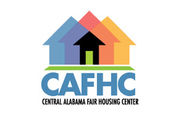Housing discrimination exists on a vast spectrum and often includes unfair and unlawful bias based on familial status or the fact that an individual has or plans to have a child. Discrimination is not limited to minority groups, insular communities, or based on only one factor, such as race, religion, creed, or national origin.
Under the federal Fair Housing Act, housing providers, lenders, landlords, real estate agents, etc. cannot discriminate against an individual/individuals based on familial status. Federal protections of the FHA extend to cover families with children under the age of 18, same-sex parents with children under the age of 18, pregnant persons, any individual in the process of securing legal custody of a minor child, non-traditional families (such as single parents), adoptive parents, foster parents, and individuals with written permission to serve as the parent or legal guardian of a minor.
In this case, it’s important to point out that federal law doesn’t limit the applicability of reasonable local, state, or federal restrictions regarding the maximum number of occupants permitted to occupy a dwelling. In this case, it may be found legal for large, or excessively large, families to be denied certain housing options beyond the basis of discrimination. Also linked to familial status, the Act exempts “housing for older persons” from familial status discrimination, which includes certain senior housing facilities and communities.
If you have children or plan on having children living with you at some point in the future, you should be aware of the law and your protection for families with children against discrimination.
When Does Familial Status Housing Discrimination Occur?
Some landlords don’t want children living in their building or complex, and so they refuse to rent, lease or otherwise provide equal housing opportunities to families with children. If a landlord, leasing agent, or other housing professional attempts to limit your housing choices because you have children, this is essentially illegal, and you have the right to pursue and file a fair housing complaint against the party at hand.
Additional examples of housing discrimination based on familial status include, but are not limited to, the following:
- Advertising that a property/community prohibits children
- Evicting a family from a rental unity once a child enters the family
- Stating that an individual’s residency is contingent on the premises that they do not get pregnant or plan to have children
- Requiring families with children to live on specific floors, within specific buildings, or within certain areas of a housing community.
- Forcing families into homes or housing units that are larger than necessary
- Charging additional rent, security fees, or additional deposits because a family has children under the age of 18.
- Telling a family that no homes or housing units are available even though there are units available.
- Imposing overly restrictive rules about children’s use of common areas (hallways, community rooms, and spaces, pools, etc.)
Laws protect the various parties mentioned previously in this article. In circumstances when discrimination occurs, to qualify for familial status protected under the Fair Housing Act, you must be the child’s parent, the legal custodian of the child, or the “designated” legal guardian, as granted by written and explicit permission. Additionally, the minor must be under the age of 18, biologically related or adopted to you, and/or already a household member (or expected to be one).
Understanding the Senior Exemption and Additional Rules
The FHA’s ban on familial status discrimination is lifted for certain types of senior housing, such as designated retirement communities, senior citizen living facilities, nursing homes, assisted living communities, and so on. Owners of qualifying senior communities across the United States may legally discriminate against children due to the very nature, purpose, and safety of the designated housing facility or community.
If you plan on conducting an apartment search that will include senior communities – and if you are doing so with the expectation of having children present in the home – be sure to research the circumstances when children may be legally allowed to live there.
Additionally, it’s important to understand that familial discrimination is slightly different than other types of housing discrimination. For example, there is never a legal justification for discrimination based on race, sexual identity, gender, religion, or national origin. But it is okay for a landlord to single out children – if their intent lies in protecting the health and safety of the child, and if those limitations are legally reasonable.
What if You Are Experiencing Familial Status Discrimination?
If you are experiencing housing discrimination related to the fact that you have children – or any other situation regarding familial status protections, you are able to file a complaint directly with the U.S. Department of Housing and Urban Development.
You might also visit the CAFHC website to view our legal assistance services. We also provide countless Fair Housing Resources, including printable materials and local Fair Housing assistance.

